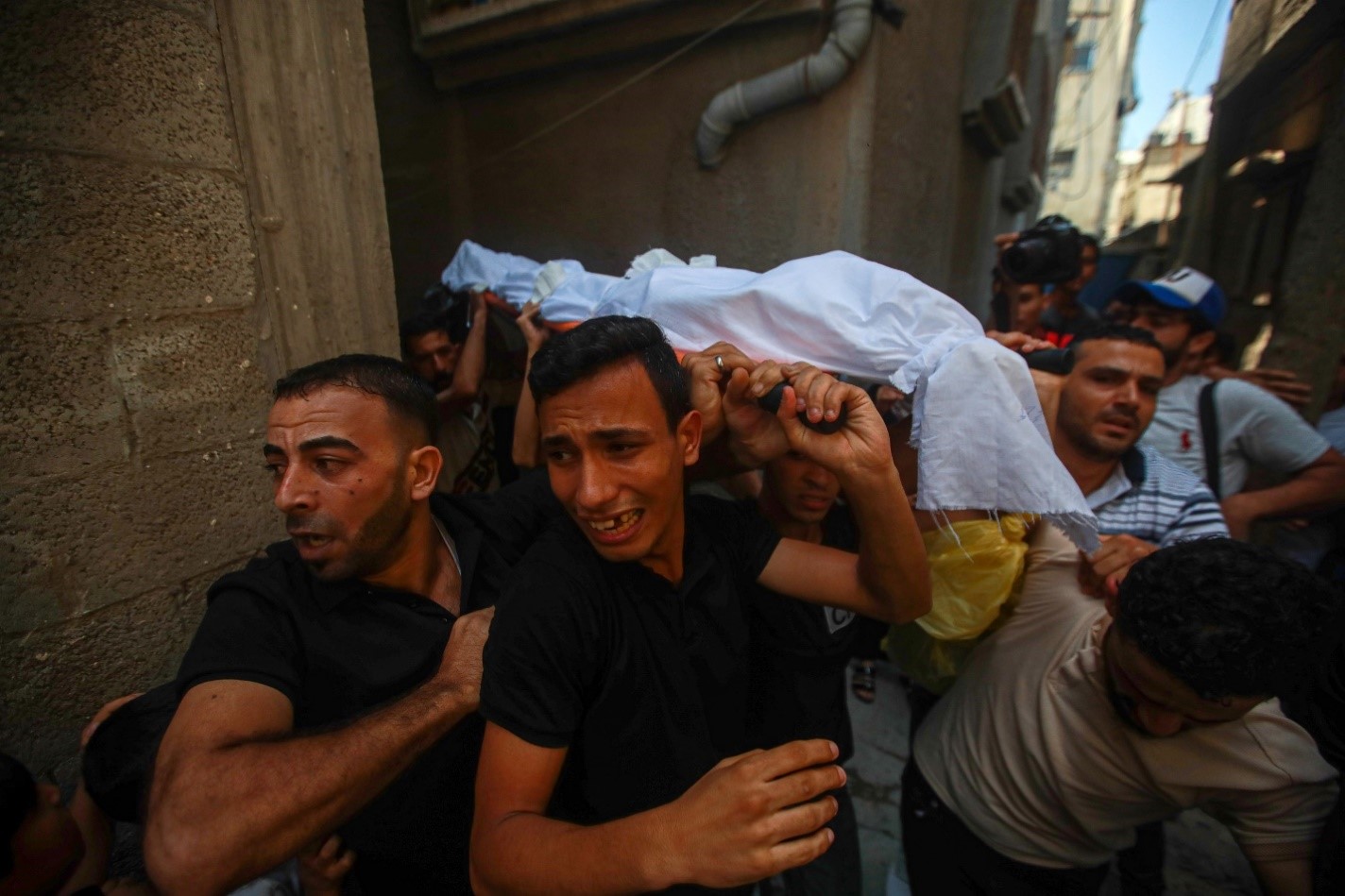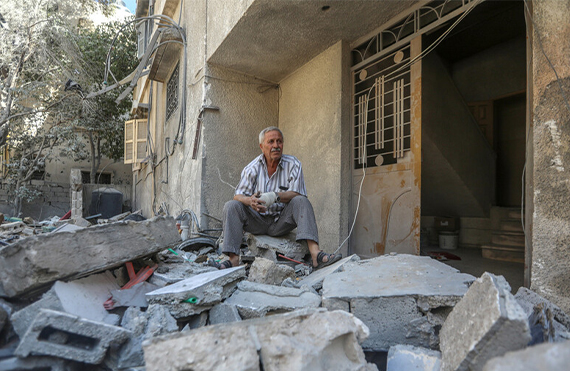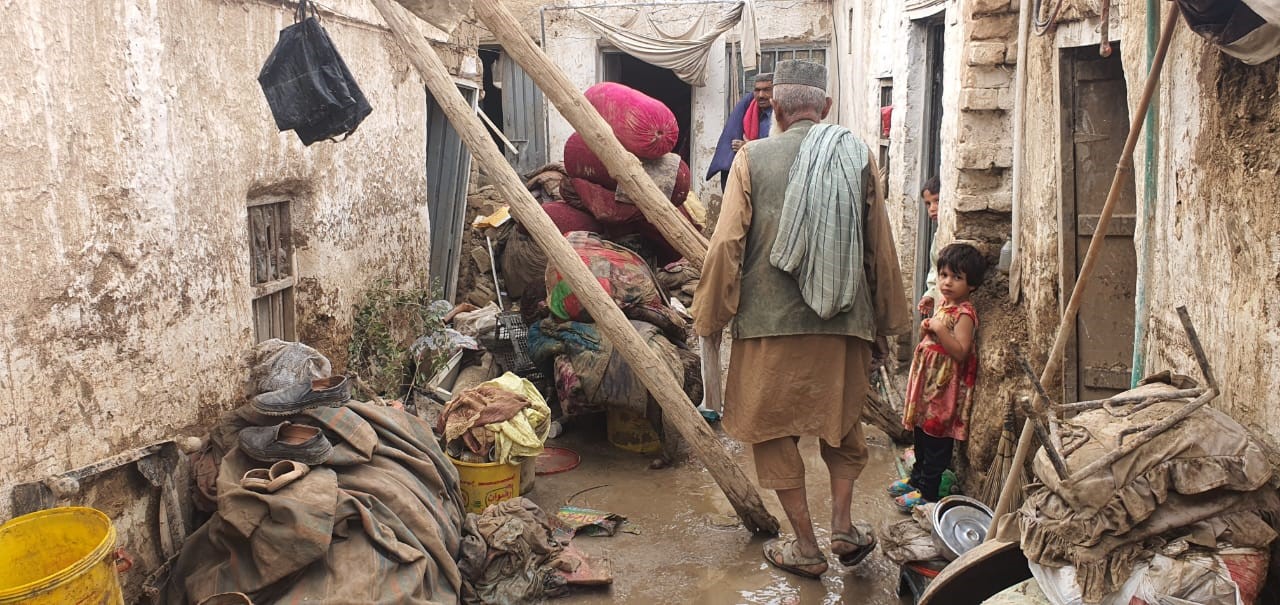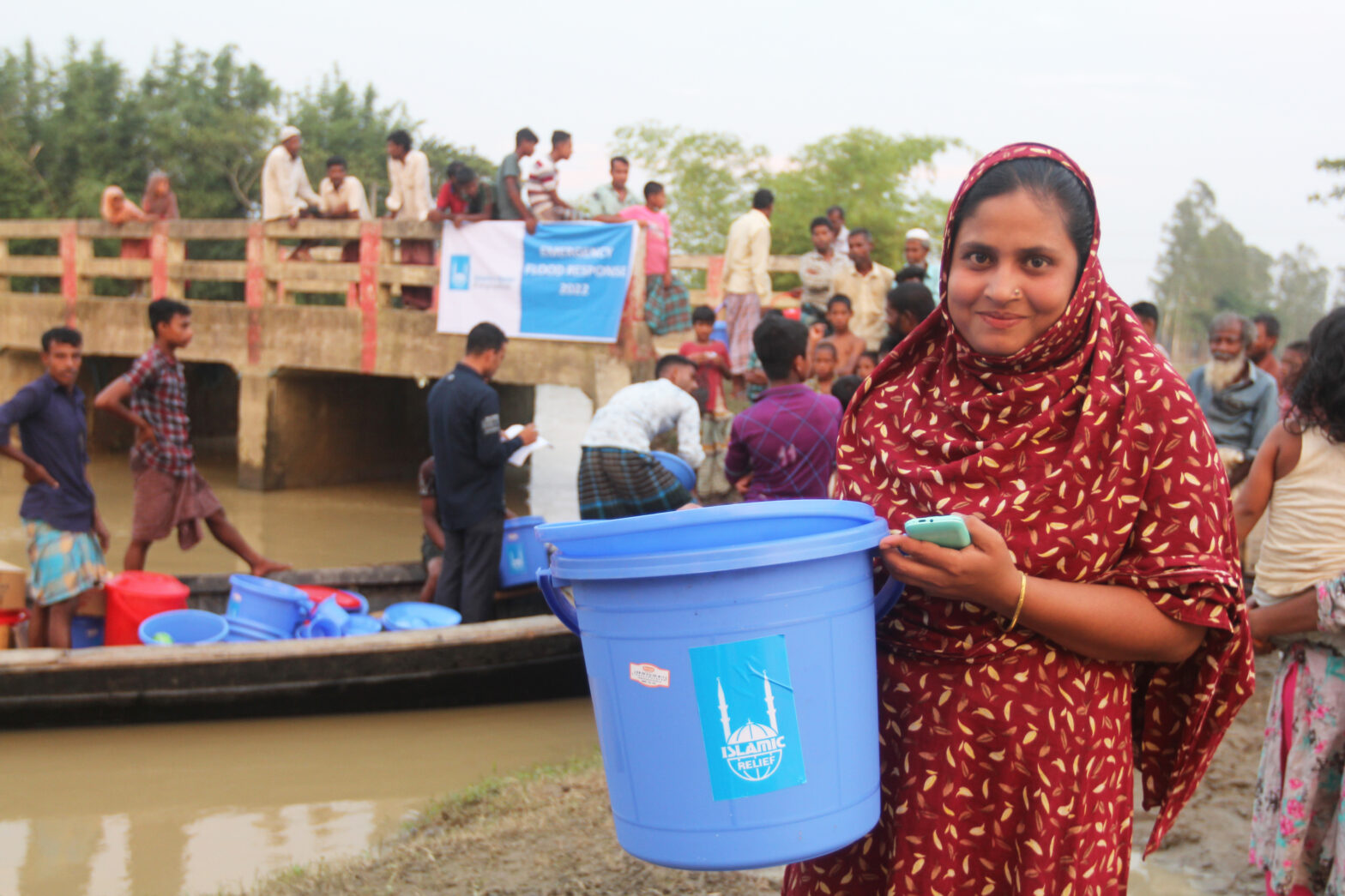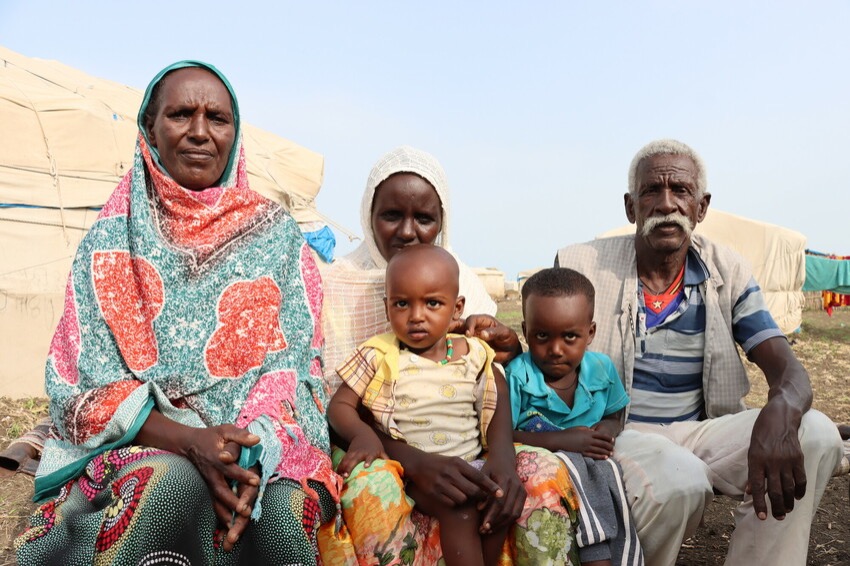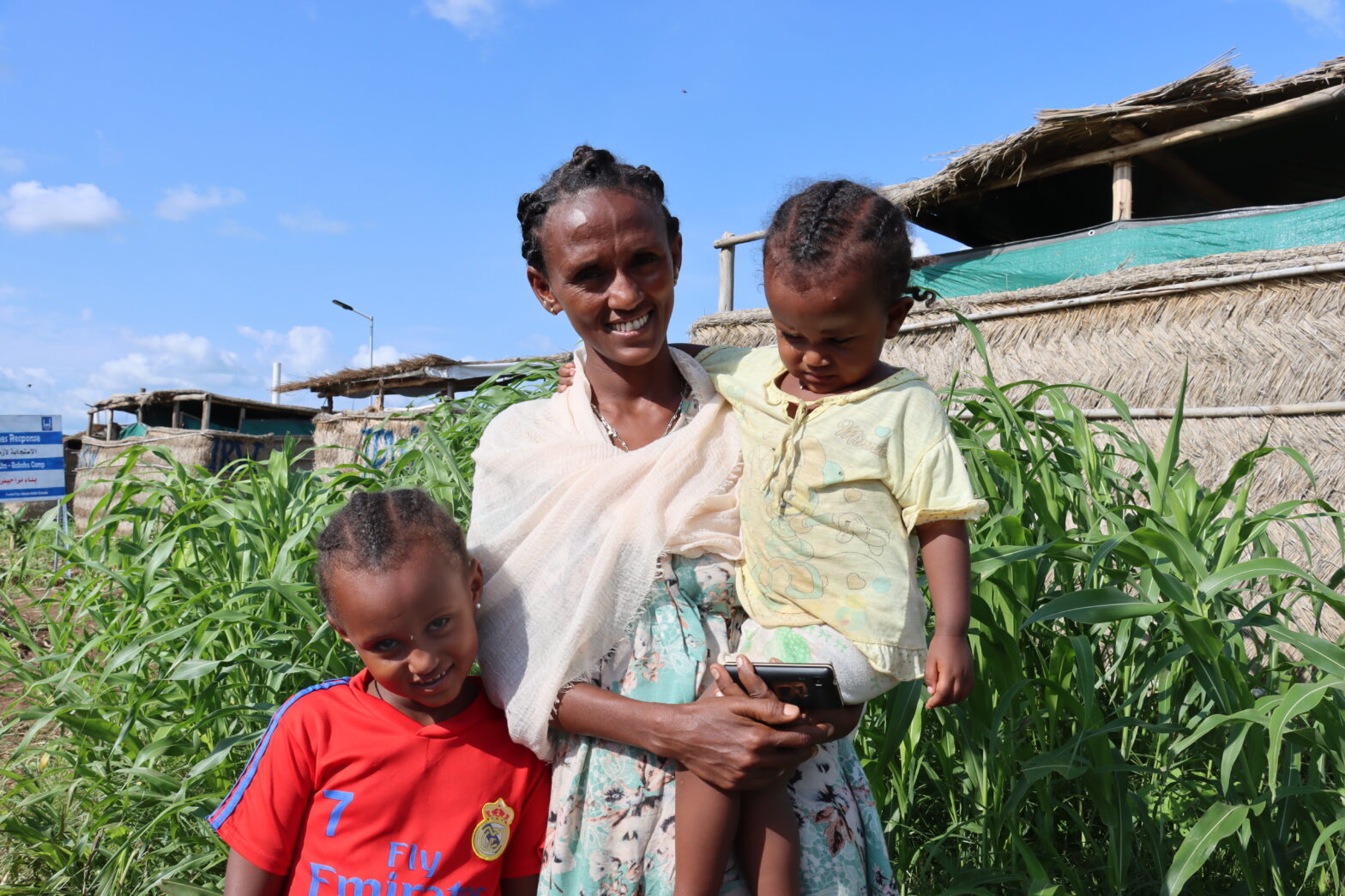Today marks World Refugee Day, a day dedicated to honouring refugees from around the world. This year, we’re shedding light on 75-year-old Bayan’s story, whose family were forced to hide in the wilderness without food or drink in order to escape conflict in Tigray, Ethiopia. Now, thanks to Islamic Relief’s project which is supporting Tigray refugees, he and his family live in a camp in Sudan, where he uses his Arabic language skills to help the community.
Bayan fled his hometown of Barakht village, Humara, Ethiopia, after armed groups invaded the town. When gunfire erupted, he and his family had to leave all their belongings behind and
“I will never forget that day. My world collapsed when the violence broke out and I couldn’t believe what was happening. Everyone was panicking as we heard gunshots and people screaming. It’s the type of thing you see on the news, but don’t expect to be caught up in.
“My wife was cooking when the war began. We went from making lunch for the children to picking them up and running for our lives. It was intense. A lot of people were killed, and some were injured. We didn’t know the value of peace, until we didn’t have it anymore” says Bayan, describing how he lived happily with his wife, children and grandchildren before the conflict began.
Finding hope after loss
After fleeing his home and struggling without food and shelter, Bayan eventually settled in Tunaydbah camp in eastern Sudan.
“We had a good life at home. I miss spending time with my friends and having freedom. Life in the camp is difficult and we don’t have many food options. We only have oil, lentils and bread, and need other things like vegetables and sugar to have a more balanced diet. However, these items are difficult to get hold of.
“We have health clinics in the camp, but there is a shortage of medicines. Accessing education is also difficult here, and my youngest son is unable to go to school”, says Bayan.
Despite the challenges of adjusting to a new life at the camp, Bayan has hope that peace will be restored in his country and spends his time supporting other Ethiopian refugees in the camp.
“A lot of people in my community, especially the women, don’t understand the language here. They need help and I try to support them,” explains Bayan, who speaks Arabic which is the official language in Sudan. He is now considered to be a community leader in the camp.
“God tells us never to lose hope”, he says.
An urgent call for support
Refugees in Ethiopia and Sudan are in urgent need of help amid a dire humanitarian situation. Continual droughts amid conflict in several countries in the horn of Africa has left many families extremely vulnerable. Millions of people do not know where their next meal is coming from amid livestock deaths, soaring food prices, and water scarcity.
There is a risk of food running out in refugee camps, which will mean that families will be forced to sell their few belongings or resort to dangerous measures to be able to feed their children.
Islamic Relief is working to support around 30,000 refugees in Tunaydbah and other camps in the Gedarif state of Sudan. We’re providing those living in camps with food, water, sanitation and hygiene items and education support. We have also installed a new solar-powered lighting system in Tunaydbah camp to help keep people safe at night.
We urgently need your help to continue this vital work: please donate to support our crucial work to support refugees and migrants.



